Research news
Medical Student Summer Research Program (MSSRP)
The MSSRP is for first year Chobanian & Avedisian medical students and supports in-depth research experiences with BU/BMC research groups. The program is on campus and is scheduled for May 13-July 9. The MSSRP is a competitive program and supports 7 weeks of research with $4000 stipends. The program includes students from the LEADS research track, and also students in the NHLBI (T35) program ($5490 stipends, $1400 student conference travel, and mentor/lab support ($875). After the MSSRP students can continue in the longitudinal research program or seek other opportunities
Applications will open in February 2023.
Sarnoff Cardiovascular Research Fellowship Program
The Sarnoff Fellowship Program offers medical students enrolled in accredited US medical school the opportunity to spend a year conducting intensive work in a biomedical research facility in the United States. Although applicants may have prior research experience, applications are also encouraged from students without extensive prior research experience. The mission of the Sarnoff Cardiovascular Research Foundation is to engage medical students in a personalized research experience with preeminent cardiovascular scientists and to foster the next generation of leaders in the field.
Fellows are selected on the basis of a national competition. Sarnoff seeks individual with demonstrated intellectual and academic achievement, as well as leadership ability.
ELIGIBILITY/RESTRICTIONS:
- Applicants enrolled in an MD/PhD program will not be eligible for a Sarnoff Fellowship.
- Applications are encouraged from second and third-year medical students. Fourth year medical students are required to submit an official letter from their medical school granting graduation deferment.
- There are no citizenship requirements for application. But those who are not US citizens must have and maintain an appropriate visa.
- The Sarnoff Foundation strongly encourage applicants from members of underrepresented or historically disadvantaged backgrounds.
STIPEND AND ALLOWANCES: $35,000 annual stipend with allowances up to $8,000 for travel support, moving expenses, health insurance and funds for travel to present paper at two national conferences.
The application deadline for the 2023-24 Sarnoff Fellowship Program is January 11, 2023.
WEBINAR: A virtual information session for potential applicants will be held on Sunday, October 23, from 4-5 pm, Eastern time. To register for the session, please email Dana Boyd, Executive Director, at dboyd@SarnoffFoundation.org
Medical students interested in applying should contact Matt Layne to discuss about their applications and assistance our Proposal Development office can provide.
Matthew Layne, PhD
Assistant Dean for Research
mlayne@bu.edu
Elyse Olesinski’s research selected for AMA Research Challenge
The American Medical Association Research Challenge is the largest national, multi-specialty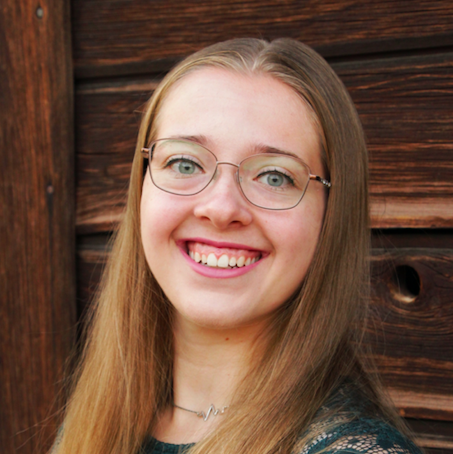 research event for medical students and fellows to share and present their research. Elyse's research was performed with a medical oncology research team at Dana-Farber Cancer Institute and Harvard Medical School investigating acute myeloid leukemia (AML) pathologies. Specifically, her projects have focused on identifying underlying BCL-2 family protein dependencies and therapies to which tumors are sensitive, using a functional assay called dynamic BH3 profiling, which measures mitochondrial apoptotic signaling.
research event for medical students and fellows to share and present their research. Elyse's research was performed with a medical oncology research team at Dana-Farber Cancer Institute and Harvard Medical School investigating acute myeloid leukemia (AML) pathologies. Specifically, her projects have focused on identifying underlying BCL-2 family protein dependencies and therapies to which tumors are sensitive, using a functional assay called dynamic BH3 profiling, which measures mitochondrial apoptotic signaling.
For the 2022 Research Challenge, Elyse's abstract: "Targeting reduced mitochondrial apoptotic signaling in relapsed acute myeloid leukemia" was selected as a semi-finalist for the event, and Elyse will present her research at their poster symposium in October. This project has the goal of evaluating emerging mechanisms of resistance against targeted therapies and to identify potential strategies overcoming resistance in AML.
My research: Development of surgical soft robots
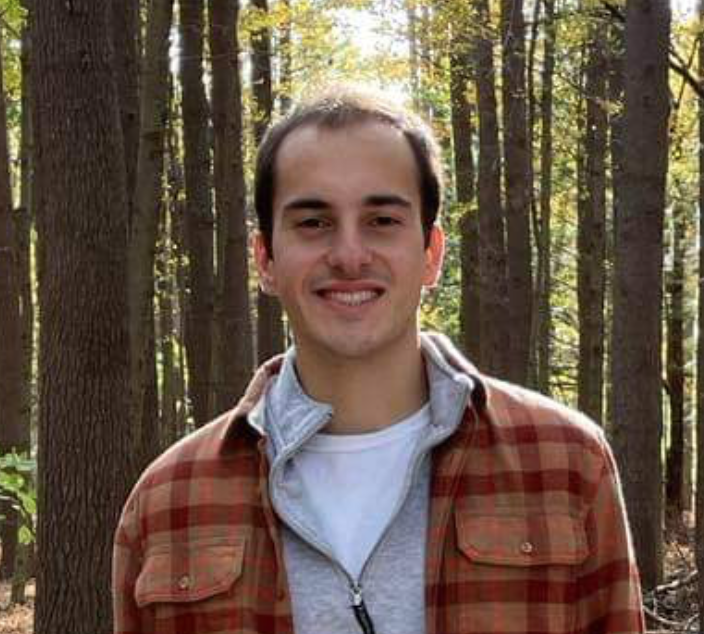
I’ve always wanted to be a Doctor. With parents that are physicians, I was inclined to become a physician at a very young age. Not long after, I started also dabbling in computers and programming, which ultimately led me to pursue a Biomedical Engineering degree at BU. This degree afforded me the flexibility of combining my interests in physiology, engineering, and medicine. More recently, after starting medical school at BUSM, I serendipitously found a position at the Morphable Biorobotics Lab, which I currently work in now. The research involves the development of novel surgical devices using soft robotic principles, which is a great synthesis of all my interests.
I participated in the Medical School Summer Research Program (MSSRP) in the summer of 2021.
Learn more about the Medical Student Summer Research Program (MSSRP) and other research opportunities for medical students.
My research: What happens inside the lungs during pneumonia
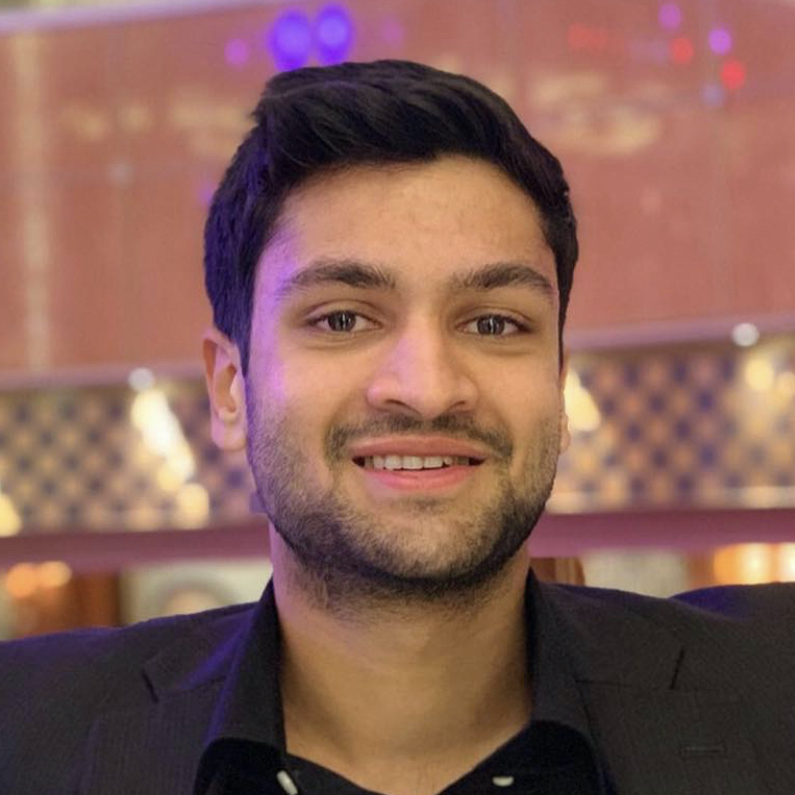
This summer, I am doing research in the pulmonology department specifically with pneumonia working with Dr. Mizgerd and Dr. Crossland. Over the decades, we have for some reason ignored what happens inside the lungs during pneumonia, and instead focused on the cause of the pneumonia (like the flu, COVID, etc). So, this research project wants to figure out what happens inside the lungs. I am quantifying histological features and immune cell counts, and by knowing more of the details of the host human response to pneumonia, then we can make more targeted medicines for the disease (the medicines part comes much later though). This project puts a lot of fields together, and so I have learned a lot of things this summer, including topics in histology, immunology, and pulmonology. But more importantly, I learned more about what makes a successful team, including some quality time at burger king!
I am a second-year medical student from Atlanta, and a little fun fact about me is that I am scared of squirrels, like very scared.
Read more about the research opportunities for medical students.
New publications—Syringe Service Program
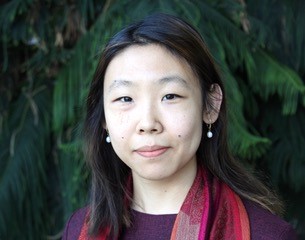
Over the past year, I worked with Drs. Angela Bazzi and Raagini Jawa to investigate the impact of the COVID-19 pandemic on Syringe Service Programs (SSPs) staff well-being. SSPs provide essential harm reduction and prevention services for people who inject drugs. We found that during the COVID-19 pandemic, SSPs underwent unprecedented shifts in operational procedures (e.g., closures of physical sites, staff redeployment into pandemic response efforts). Anxiety regarding SARS-CoV-2 transmission and rapid expansion of services to meet increasing client needs (e.g., food distribution, COVID-19 testing) led to staff overexertion and high staff turnover. Overall, SSPs are an essential public health workforce who are at risk of burnout in prolonged public health emergencies and may benefit from enhanced occupational supports. We are excited to share our findings in our article titled “We were building the plane as we were flying it, and we somehow made it to the other end”: syringe service program staff experiences and well-being during the COVID 19 pandemic, in the Harm Reduction Journal.
Have you published a research paper, recently? Are you presenting your research work at a conference? Please share your research story success with us.
My research: Gabrielle Cherfane
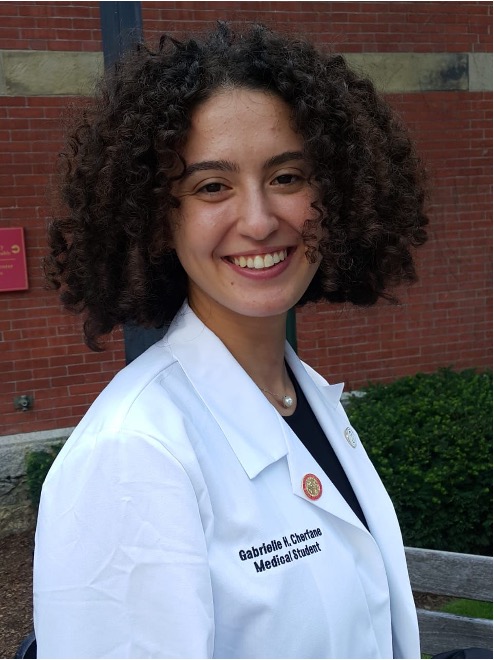
As a medical student who has never undertaken biomedical research, who does not yet know with a strong degree of certainty what specialty to pursue, but who has a curiosity for the intersection of medicine, ethics, and innovation, I found the Hawkins Lab at the Center for Regenerative Medicine (CReM) to offer the most conducive environment for my growth and development as a researcher. From reading about the potential for stem cell manipulation in a medical ethics class, to now contributing to research aimed at ultimately bettering the lives of patients with leading conditions of morbidity and mortality such as COPD, Cystic Fibrosis, and Asthma, I get to apply book to bench work while learning more about a budding field frequently discussed in medical spheres and debated nationally and internationally.
My current research, funded by the National Institutes of Health’s Heart, Lung, and Blood Institute and BU’s MSSRP grant, and with the support of my PI and mentors – Dr. Finn Hawkins, Dr. Andrew Berical, and Mary Lou Beermann – aims at reprogramming human somatic cells into lung small airway epithelial cells.
Learn more about the Medical Student Summer Research Program (MSSRP) and other research opportunities for medical students.
My MSSRP research experience
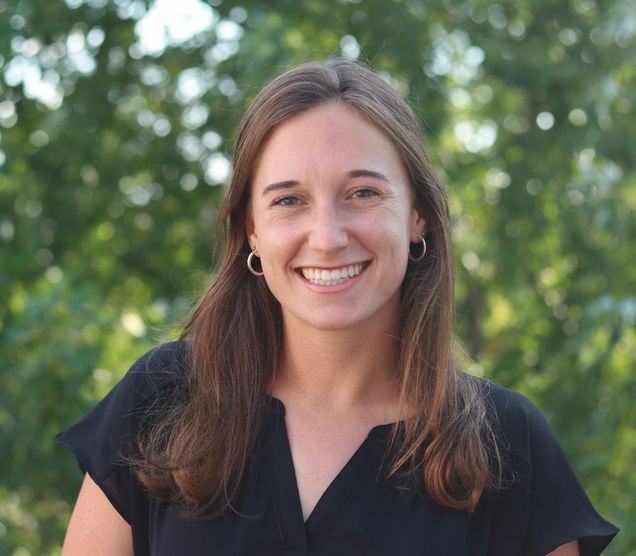
The summer after my first year at BUSM I had the opportunity to join a research study through a collaboration with the Medical Student Summer Research Program (MSSRP) and the Center for Addiction Research and Education (CARE) Unit at BMC. I currently work on the REBOOT study with Dr. Alexander Walley, which focuses on using behavioral intervention strategies to reduce opioid overdose and days of opioid use. I have been able to work with the team to conduct participant interviews and design tools to track overdose events. As part of the CARE Student Program I also had the opportunity to shadow and interact with many different providers and care team members throughout the Grayken Center for Addiction at BMC. This research has been a great way to learn about the field of Addiction Medicine, and I have had the opportunity to work with some incredible faculty members and mentors.
Read more about the MSSRP and other research opportunities for medical students.
My research: Social determinants of health—voice therapy
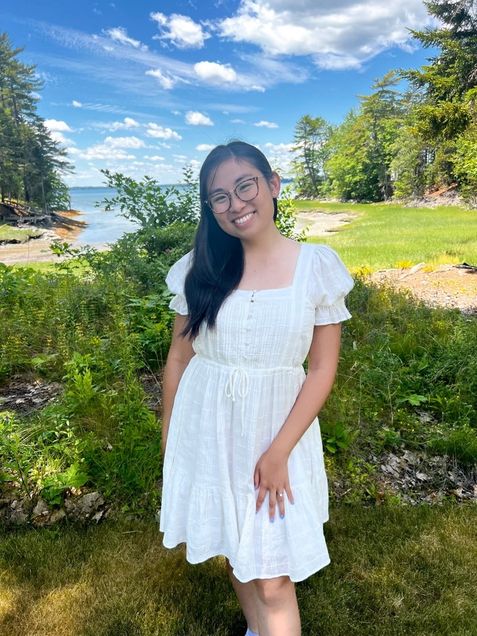
This summer (2022), I've been working primarily on a retrospective chart review evaluating the impact of social determinants of health on attendance at virtual voice therapy. Concurrently, I am drafting a manuscript for another project I began earlier in the year investigating cultural perceptions of flexible nasolaryngoscopy examinations, and also collecting data for a new project comparing the efficacy of voice therapy for English versus non-English speakers. Finally, I am conducting a bibliometric review of Otolaryngology literature to assess for gender disparities in academic productivity in the field during the COVID-19 pandemic. Altogether, my research experiences during medical school have taught me so much about the specialty I'm interested in. I have gained invaluable exposure to the breadth and depth of the field, and met incredible mentors along the way. More generally, I have enhanced many of my research skills, including but not limited to crafting project proposals, collecting and analyzing clinical data, and conveying scientific ideas clearly and concisely, both orally and in writing.
Read more about the research opportunities for medical students.